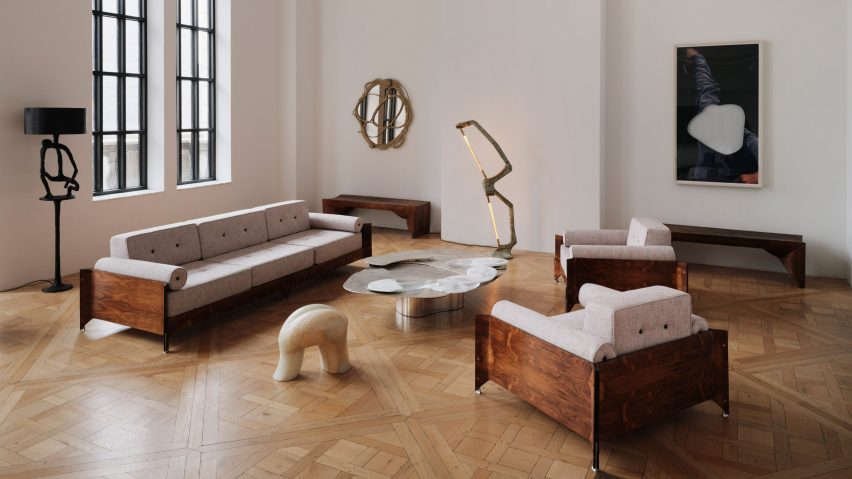
Carpenters Workshop Gallery exhibits modernist furniture design from Brazil
Work by Lina Bo Bardi and José Zanine Caldas was on view at Carpenters Workshop Gallery in New York City as part of an exhibition on modernist Brazilian furniture.
Called Turning Tides: Designing a Modern Brazil exhibition, the show highlighted 75 years of design from the South American country.
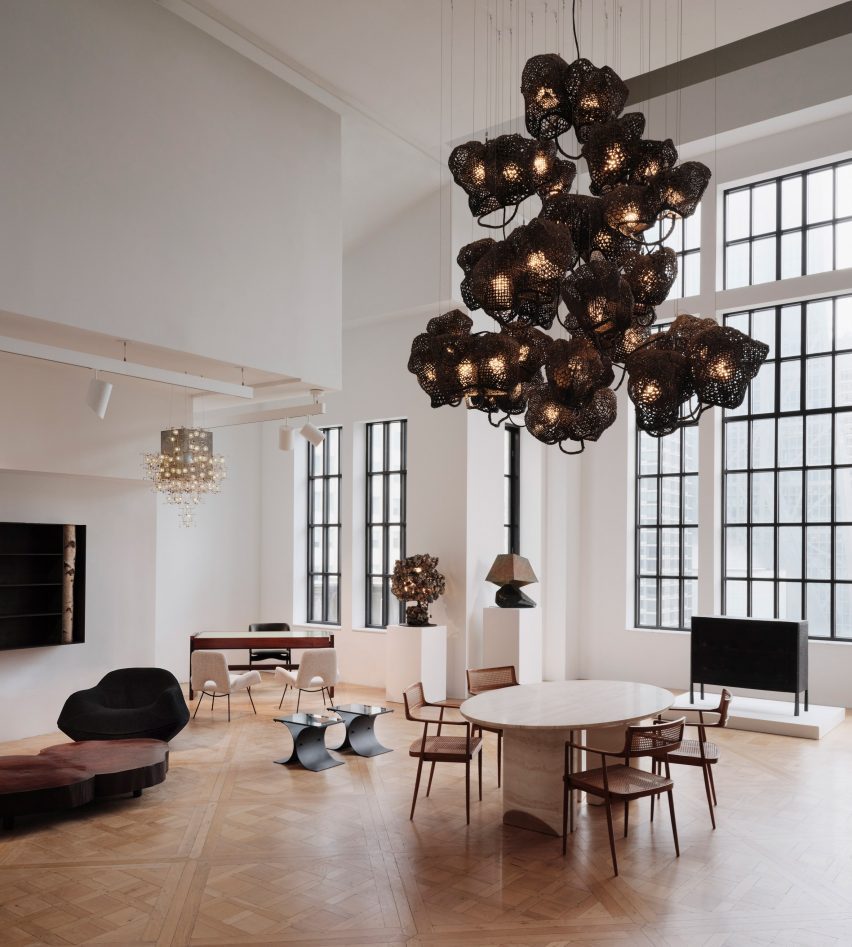
It was launched to survey the impact of influential objects and furniture on daily life in the country and elsewhere, according to Carpenters Workshop Gallery.
The exhibit included works by post-war designers from Brazil such as Joaquim Tenreiro, Jorge Zalszupin and Sergio Rodrigues but also contemporary talents, such as Studio Campana, who have been influenced by these historical figures' experimental use of colour, texture, material, form and traditional crafts.
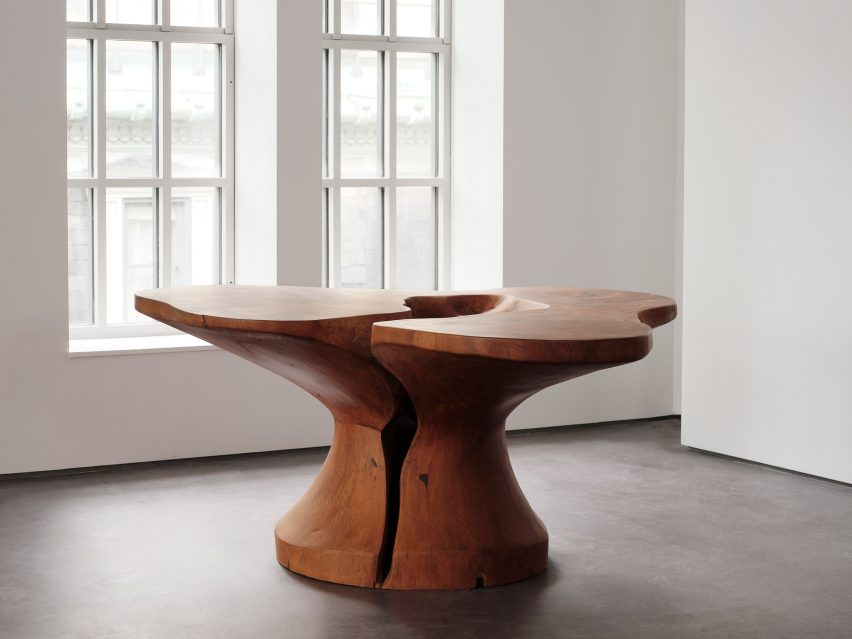
"Turning Tides honours a diverse cadre of artists who navigated and shaped their creations in the crucible of Brazil's culturally rich history, reflecting significant social, cultural, and political changes that influenced various aspects of society," said Carpenters Workshop Gallery.
Produced using a single Pequi tree trunk, sourced in the Região Centro-Oeste region, the Dining Table by Caldas demonstrates these designers' interpretation of modernism and contribution to the development of a distinctive Latin American style.
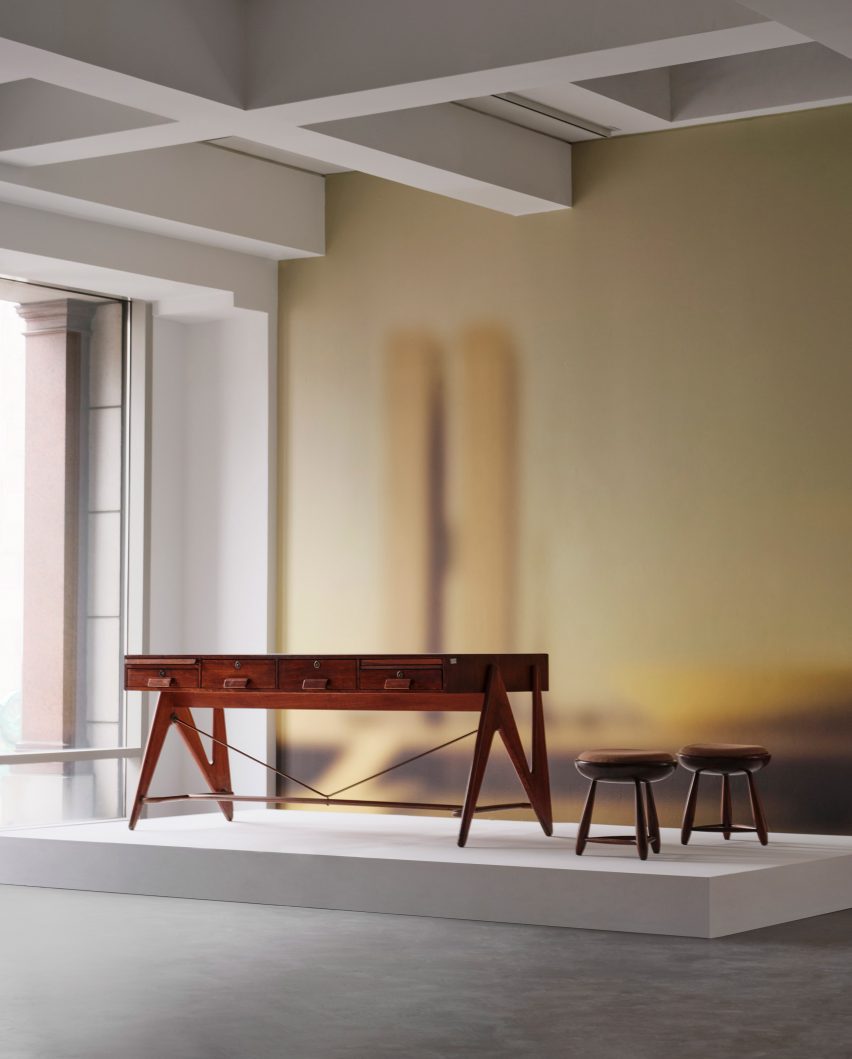
Caldas led the Móveis Denúncia movement which aimed to preserve local forests and often used materials from fallen trees.
"The exhibition presents the fabric for modern living in Brazil," said Maria Cecilia Loschiavo, associate professor of Design at the School of Architecture and Urbanism, University of São Paulo.
"The public saw the various trends, the avant-garde and the diversity of materials] used, but also the sovereign presence of wood, which established the designers' link with vernacular culture and the beginnings of Brazilian furniture."
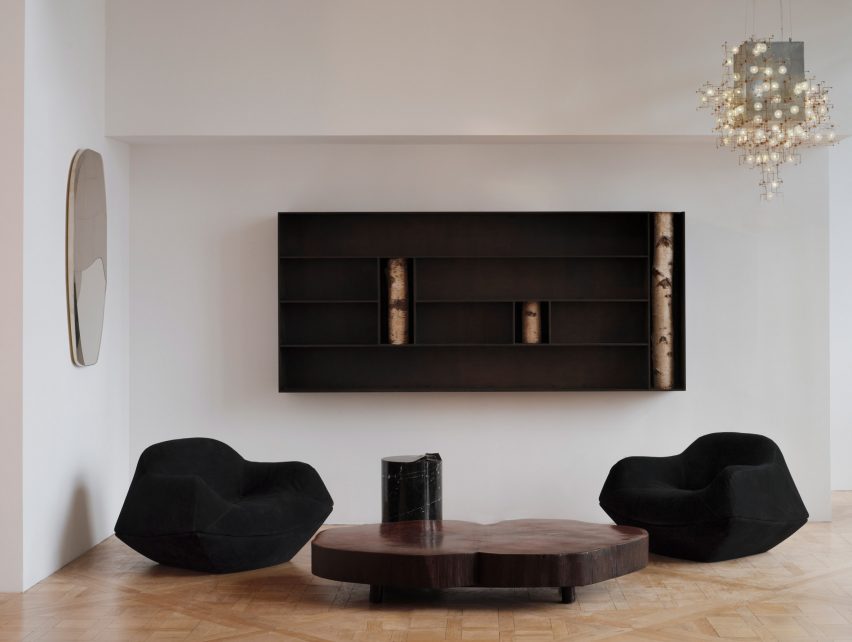
Many of the furniture pieces were designed by architects who also created furniture, such as Italy-born Lina Bo Bardi.
Her 1950s Writing Desk was produced using Caviuna wood and includes Z-shaped legs, which, according to the gallery, was a major part of Brazil's contribution to modernism.
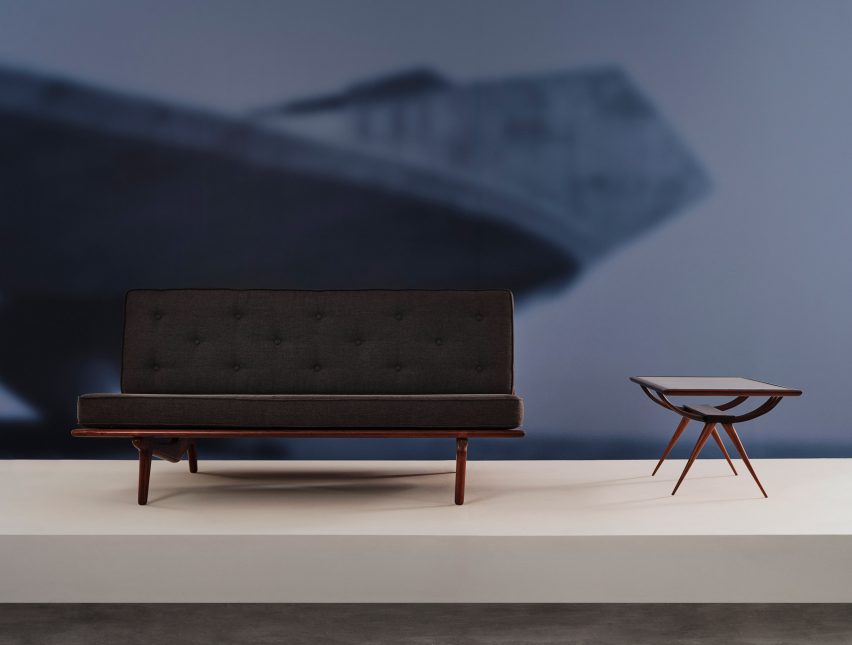
Other European designers who moved to the country during this time period include Carlo Hauner and Martin Eisler, who developed the organic, tubular metal frame Reversible Armchair.
The concave steel-and-glass-topped Side Tables by architect Oscar Niemeyer, who was responsible for the master plan of the country's capital Brasilia, was also on view.
"Turning Tides pays tribute to Brazil's design legacy, highlighting the historical impact of Modernism, local craftsmanship, and innovation," said Carpenters Workshop Gallery co-founder Loic Le Gaillard.
"Every piece – from Joaquim Tenreiro to Sergio Rodrigues and Lina Bo Bardi, tells a story of resilience, ingenuity, and the unwavering pursuit of beauty."
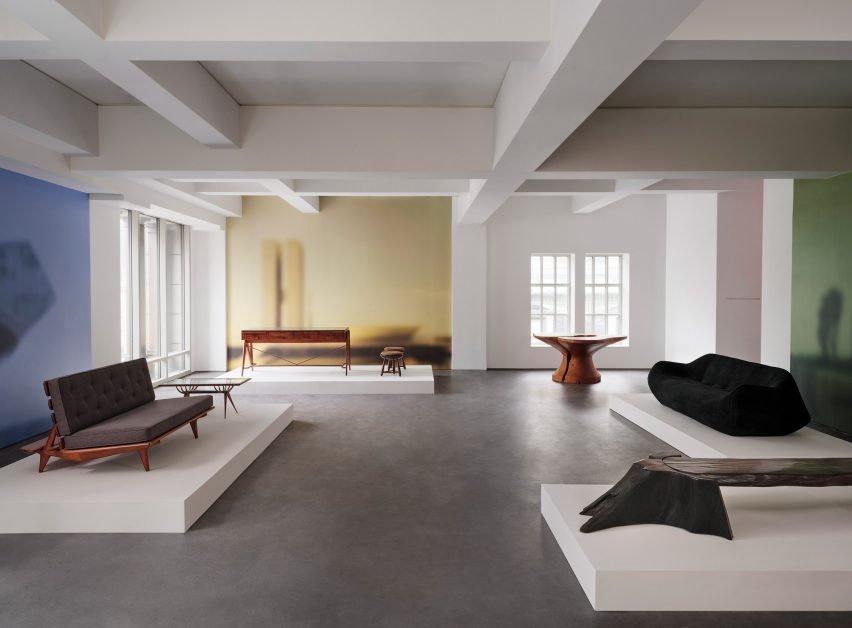
Brazilian design has featured in a number of recent shows in the American city, including a recent solo show by Estúdio Campana, the first since the passing of studio co-founder Fernando Campana.
The Photography is by Matt Harrington.
The Turning Tides: Designing a Modern Brazil exhibition is on view from 7 March to 31 May at Carpenters Workshop Gallery. For more architecture and design exhibitions visit Dezeen Events Guide.